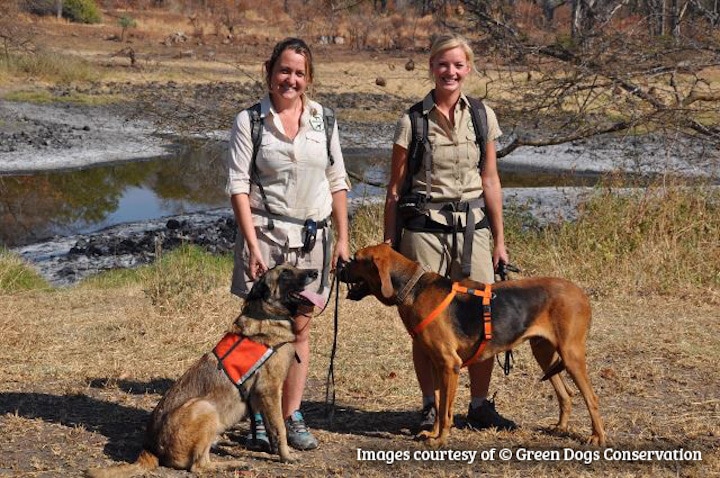When we read about anti-poaching efforts in the news, we are often only introduced to the men and women who work to eliminate this problem. What we tend not to see is the pack of highly trained dogs that are key members of anti-poaching missions, and the hard work they do to aid animal conservation.
With a sense of smell 10 000 times better than our own, dogs are uniquely suited to tracking the faintest scent and perfect for sniffing out poachers. Each anti-poaching dog is trained individually using reward-based training techniques to turn them into an early warning system for the rangers when out in the field. This is very important as most poachers are heavily armed and strike during the night, which makes a dog’s keen sense of smell a lifesaver.
Ranger (Klaserie)
But training an anti-poaching dog doesn’t happen overnight. It takes months of hard work to train these dogs, as they have to be able to track a number of things at once. This includes the scent of humans, sniffing out rhino horn, protecting the rangers and even knowing how to find ammunitions. All these tracking skills are crucial to making these dogs effective companions when in the field.
Faust demonstrating snare detection at Dinokeng.
Organisations, like the Green Dog Conservation are dedicated to training domestic dogs in a range of conservation disciplines, including anti-poaching. With no special breeding or pedigree needed, these dogs are selected solely on what they can do and not where they come from. The standards are quite high, so not every dog can make it into the programme. The dogs that do, however, are also the ones that are most dedicated and really love their job.
Koevoet (Klaserie)
 With over 790 rhinos poached this year in South Africa, the situation is worse than ever. As part of the last line of defence, anti-poaching dogs and their trainers are fighting a battle of epic proportions, which at times seems impossible to win. It’s hard work, but these everyday heroes and their trainers seem to be up for the task.
With over 790 rhinos poached this year in South Africa, the situation is worse than ever. As part of the last line of defence, anti-poaching dogs and their trainers are fighting a battle of epic proportions, which at times seems impossible to win. It’s hard work, but these everyday heroes and their trainers seem to be up for the task.
Additional links:
Rhino Poaching statistics:



